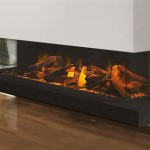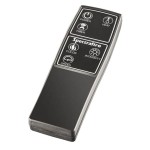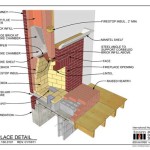Essential Aspects of Gas Fireplace Electronic Ignition
Electronic ignition systems have revolutionized the convenience and reliability of gas fireplaces. Unlike traditional pilot systems that require manual lighting, electronic ignition uses an electric spark to ignite the gas, providing instant and effortless operation.
Understanding the essential aspects of electronic ignition can help you make informed decisions when choosing and maintaining a gas fireplace. Here are some key considerations:
Ignition Module
The ignition module is the heart of the electronic ignition system. It generates the electric spark that ignites the gas. Modern ignition modules use solid-state electronics, ensuring reliable and consistent ignition under a wide range of conditions.
Ignition Probe
The ignition probe is responsible for delivering the electric spark to the gas. It is usually located near the burner, and its shape and positioning are crucial for optimal ignition. Proper alignment and cleaning of the ignition probe are essential to prevent ignition failures.
Gas Valve
The gas valve controls the flow of gas to the burner. Electronic ignition systems typically use a solenoid valve that opens and closes in response to an electrical signal from the ignition module. The gas valve must be compatible with the ignition system to ensure proper operation.
Flame Sensor
The flame sensor detects the presence of a flame after ignition. It continuously monitors the flame and shuts off the gas supply if the flame goes out. This safety feature prevents gas buildup and potential hazards.
Remote Control or Wall Switch
Electronic ignition systems can be controlled remotely using a remote control or a wall switch. These devices send a wireless or wired signal to the ignition module, initiating the ignition process. Remote controls provide convenience and flexibility, allowing you to operate the fireplace from anywhere in the room.
Maintenance and Troubleshooting
Proper maintenance is crucial for the optimal performance of an electronic ignition system. Regular cleaning of the ignition probe and flame sensor can prevent ignition failures. If you experience issues with ignition, check the following:
- Ensure the gas supply is on.
- Check if the ignition probe is properly aligned.
- Clean the ignition probe and flame sensor.
- Inspect the gas valve and ignition module connections.
In case of persistent issues or safety concerns, it is advisable to contact a qualified technician for professional assistance.
Conclusion
Electronic ignition systems for gas fireplaces offer a wide range of benefits, including instant and effortless ignition, increased reliability, and safety features. By understanding the essential aspects of electronic ignition, you can make informed decisions when choosing and maintaining a gas fireplace that will provide warmth, comfort, and peace of mind for years to come.

Fireplace Millivolt Electronic Ignition Valve Kit For Use With A Wall Switch 82k Btu

Electronic Ignition Gas Fireplace Valve Kit Firepit Outfitter Fire Pit

Electronic Ignition

Fireplace Millivolt Honeywell Electronic Ignition Valve Kit For Use With A Wall Switch 150k Btu

Hpc Fire Lbof Electronic Ignition Outdoor Gas Fireplace Burner Kit

Superior 36 Inch Electronic Ignition Vent Free Outdoor Gas Fireplace With Remote Vre3236

Napoleon E42xte Elevation Series Electronic Ignition 42 Inch Direct Vent Gas Fireplace

Elevation 42 Direct Vent Fireplace Natural Gas Electronic Ignition

Grand Canyon Mvkeikn Mvkeiklp Battery Powered Electronic Ignition Us Fireplace

Napoleon Gl18e Vented Gas Log Set 18 Inch








